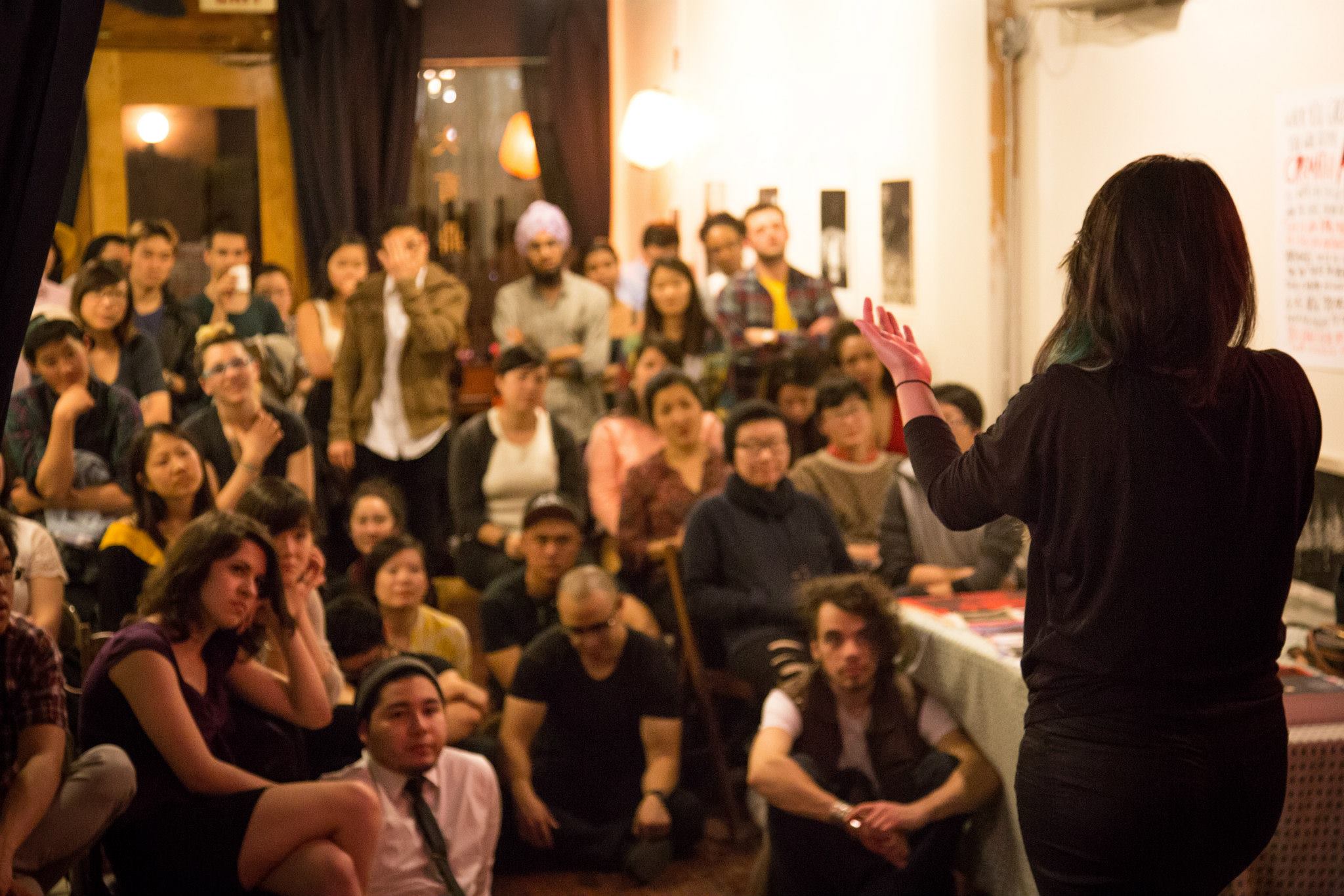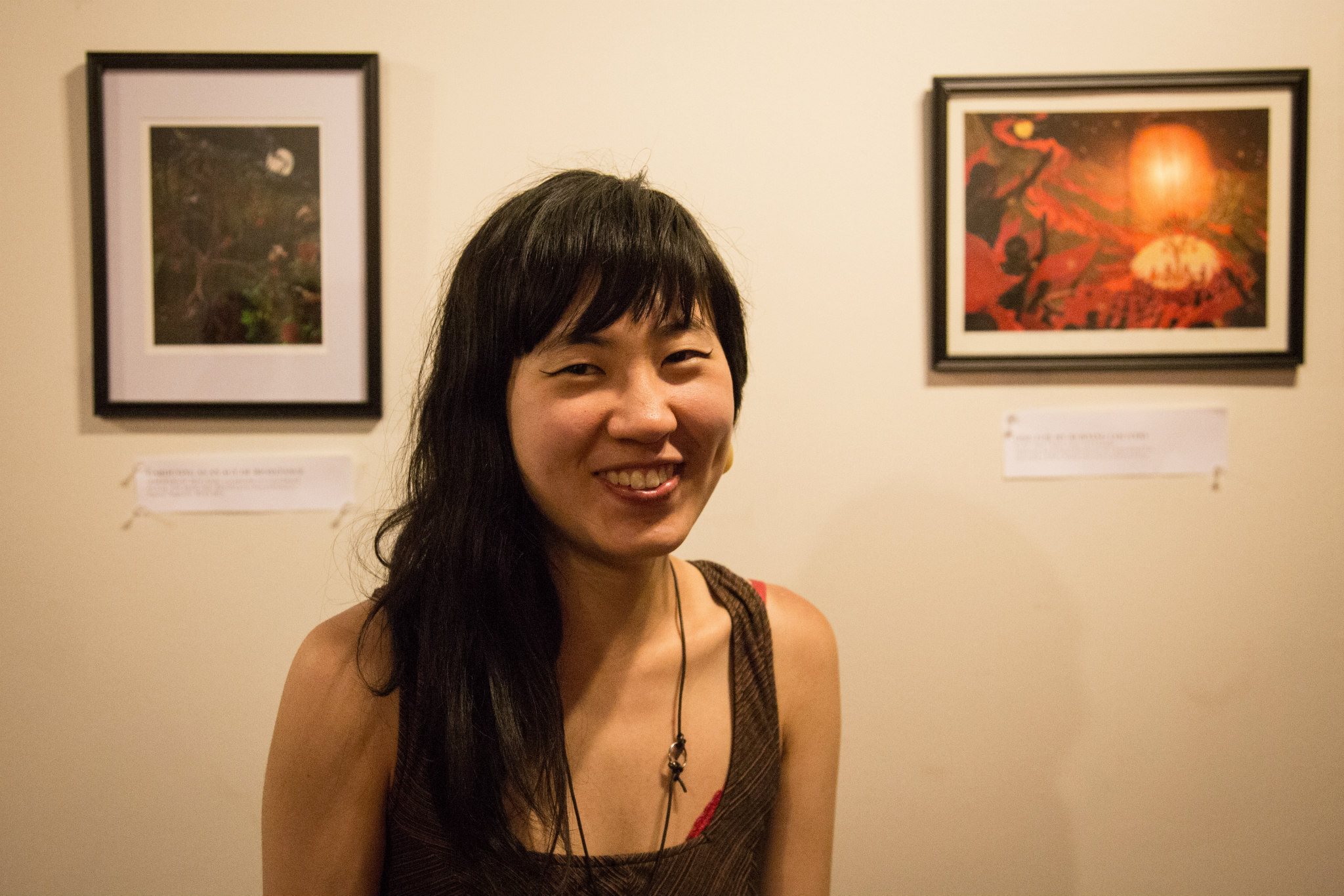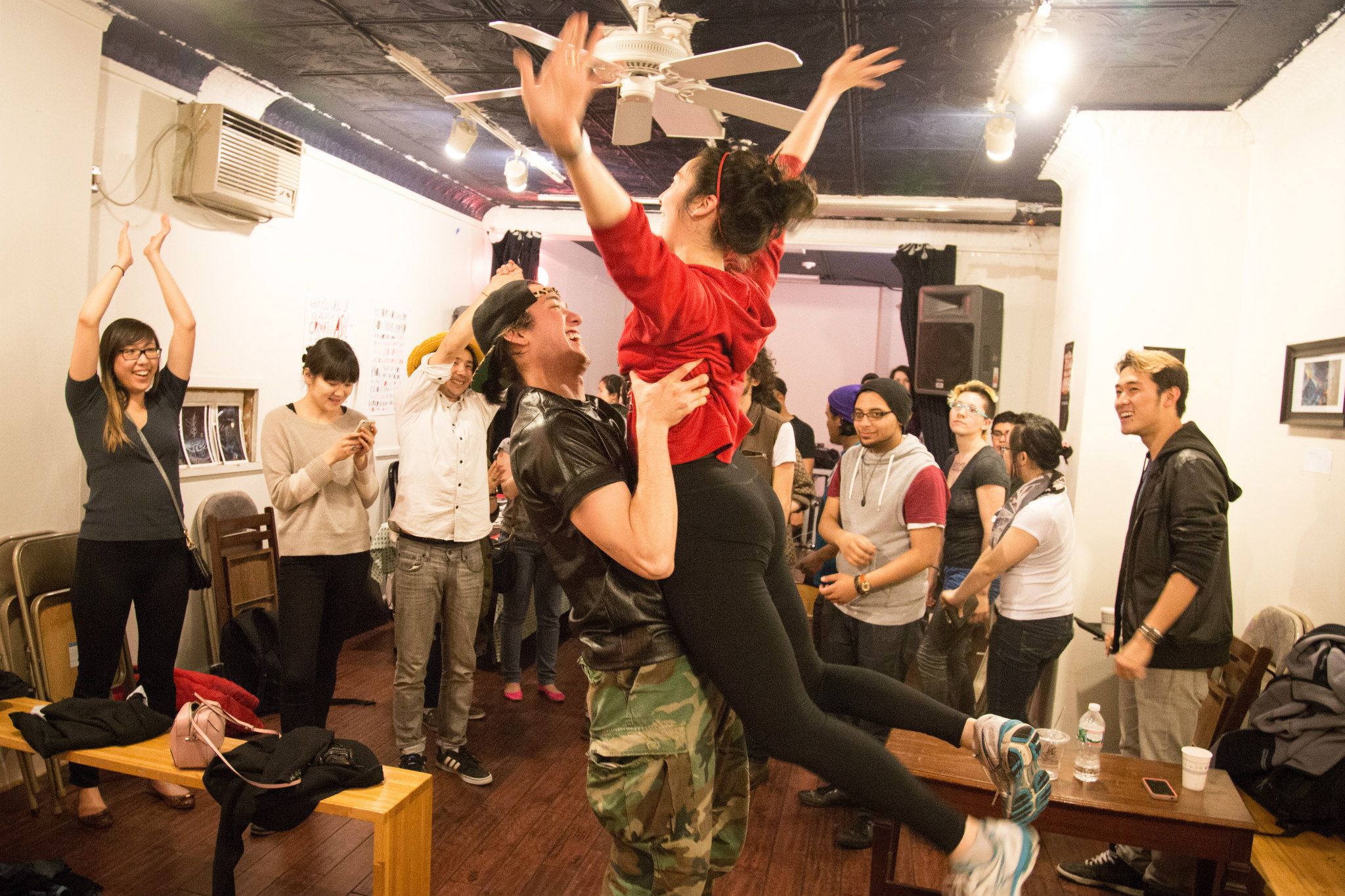I first saw Franny Choi at EMW a couple of years ago, when she and a bunch of talented students from Brown U (including one of our current EMW residents, Kai Huang) featured. So it's been a real treat witnessing her rise as a poet, from all the national poetry slams she's dominated to doing a TED talk, from publishing her first book to being profiled by the Poetry Foundation. I suppose I should clarify that I'm not a stalker, but that I follow, teach and write about Asian American literature for a living. ;)
I could get all academicky about what Franny is doing with spoken word poetry as a form and how Jess X. Chen's haunting illustrations serve as interlocutors to Franny's poems in their volume, Floating, Brilliant, Gone, but I'm not going to. In the four years that I've been coming to EMW, I come not as a prof, but as any other person who is constantly processing what it means to navigate this world in my body, who needs community in order to validate/embrace/resist/negotiate all the mechanisms that inform my day-t0-day experience. Which is why for me the most memorable line from Franny's reading last night came from her poem, "Orientalism (Part II)"-- It's about being an Asian woman with a white boyfriend, and having to deal with all the pasts and presents that their bodies signify. The lover tells the speaker: "Please, my love,/ Not every house is haunted."
That got me thinking about what ghosts I'm constantly battling, that we're all constantly battling. I've never been more aware of what it means to walk around the world as an Asian woman until I've had to navigate two things: working as a professor in the lily white world of academia, and dating as a single woman in Boston. Just as Franny writes about being cat called by men who shout, "I like pork fried rice!" I could testify to having fucked up things said to me. It was at work, not on a date, when an older white man asked me if I wanted to sit on his lap. It was on a date, not at work, when a man (not white, which makes this more sad) marveled at my "outspokenness," as if it's some genetic anomaly. It's in the pursuit of both work and love that I constantly have to explain where I am really from. We could wish that these interactions, however frustrating, are ultimately benign, that they're just the faux pas of some stupid and ignorant individuals. We fear, though we know to be true, that they indicate something deeper: that the reason why these and far worse violences happen is because we have built the world in a way that allows them to.
It's easy to walk around angry, jaw clenched so tight that you have a chronic headache, as I have. What's not as easy is containing that anger, channeling it towards something productive, all the while figuring out what moments are residues of some larger forces of oppression that are worth fighting and which moments welcome forgiveness.
That, I suppose, is why poetry is so important. We get to figure that shit out. And take comfort in knowing that we don't have to figure that shit out alone. And, moreover, we get to sigh, cry, and laugh together in that process.
I think that's why one of my favorite poems of Franny's is "Pussy Monster." Through such a simple move, of rearranging the words to a Lil' Wayne song by order of frequency, she incisively highlights the narcissism with which misogyny operates, as the poem culminates in an outpouring of "me me me me me..." and "I I I I I I I I I I..." But by the end the word "pussy," which signifies so much violence done towards women, gets reclaimed as both political commentary and as a word we can chuckle about. Even better, it becomes a collective mantra-- It's telling that Franny's reading last night ended with the entire audience chanting with her, "pussy, pussy, pussy, pussy..."
As Franny would say, that's magic.




